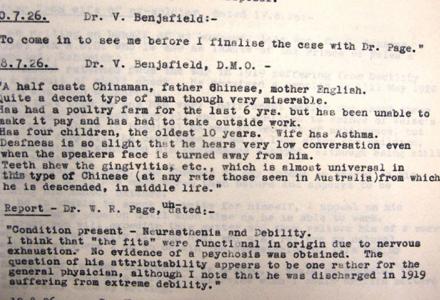Little more than a boy when he went to war, Private Biggs served as a signaller. He was often near the frontline, often shelled, gassed, and afraid. Certainly, Reginald Biggs recalled the danger, fear, and misery of war, but he also remembered the times outside the actual fighting. There were hearty meals at village estaminets washed down by bowls of coffee and plentiful vin blanc or vin rouge served ‘by a lovely blonde’; walks through beautiful woods beyond the ‘broken countryside’; flirting with pretty nurses; and jokes of ‘a war time flavour’.
Biggs returned to Belgium and France half a century after the Armistice had been signed. But for Bigg—and the thirty other veterans that accompanied him—a solemn pilgrimage across the battlefields was not the only thing on their minds. What Reggie Biggs called ‘fraternisation’—and simply having a bit of fun—proved at least as important as commemoration and mourning. A number of the ‘68 pilgrims threatened to ‘wag it’ if the trips to the cemeteries weren’t balanced by time in bars, cafes, and other places ‘diggers frequented’. Worried that things were starting to look a bit too serious, he wrote to the organisers with advice for the itinerary: ‘the bus could take us to Armentières via the rest and training area we used to go back to. (I’d love to call at the billet … near Becourt ... to see whether that fine girl and my company’s friend Marie is still there)’. And he followed up that ‘In England, why not a sentimental trip to Salisbury Plain…? In France, [let’s do] a round trip … through our old rest areas ... Then have a couple of days doing Paris (wonder whether the Hotel All Nations brothel is still functioning?)’.
In the twilight of his life, battlefield feats seemed far less memorable than youthful exuberance and sexual adventure. This was ‘that other war’ Reggie Biggs and his comrades chose to remember.
Reggie Biggs’ story is an important corrective to popular memories of the Great War. Less than one third of a digger’s time was actually spent fighting, time ‘behind the lines’ was as much a part of a soldier’s war as time spent in combat or the trenches. And whilst traumatic memories afflicted many veterans, Biggs included, there were counter memories as well, selective and curated narratives that served to compose a memory of war that returned soldiers could live with. Reginald Biggs’ story alerts us to the diversity of war experience and to the way veterans challenged and subverted commemorative protocols.



